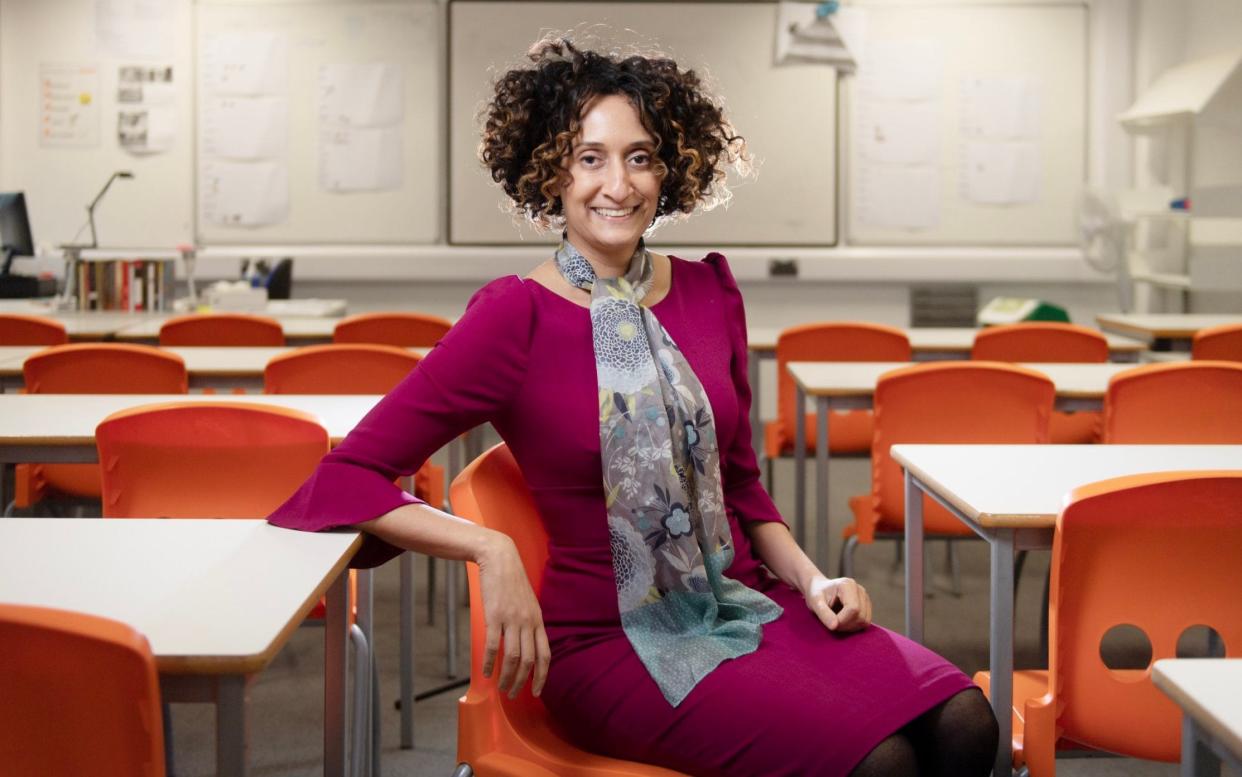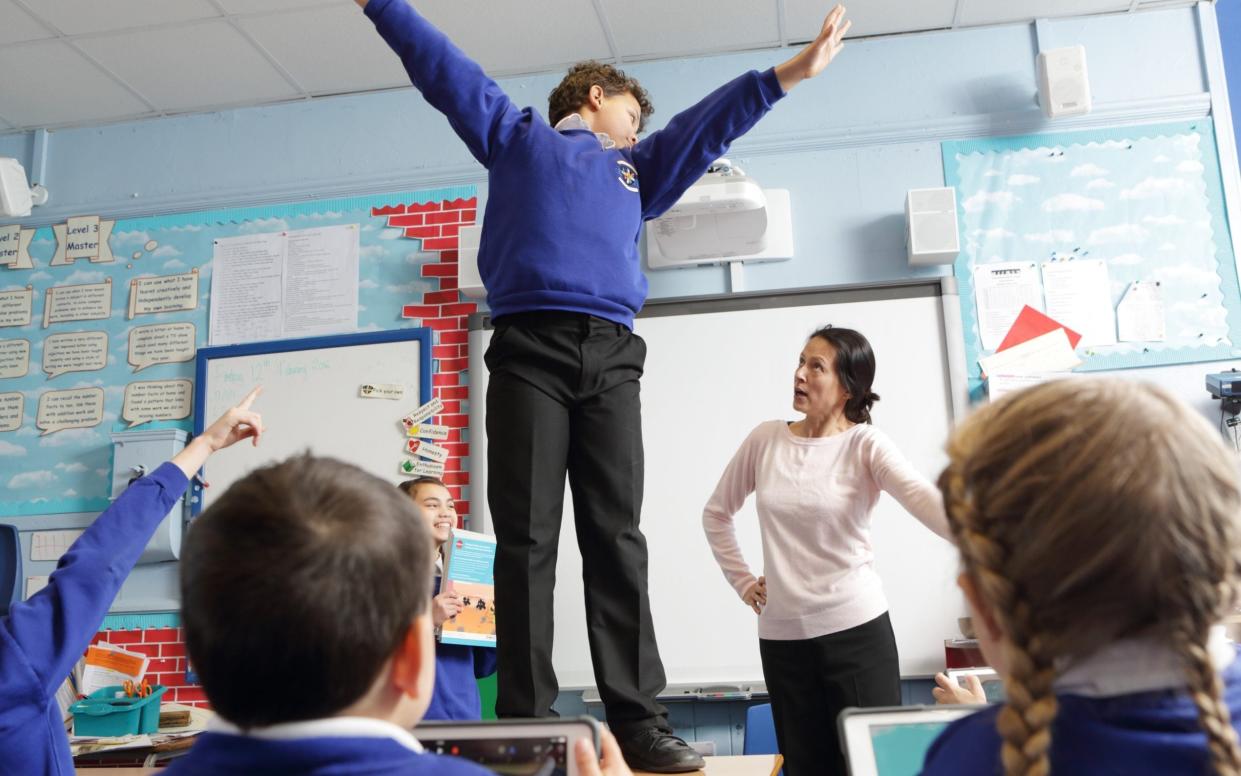Katharine Birbalsingh leads backlash to Government plans to lower school behaviour standards

Katharine Birbalsingh has led a head teachers’ backlash over Government plans to soften measures tackling bad behaviour in the classroom.
The high-profile head, whose London school was ranked best in the country last year for pupil progress, warned that disadvantaged children would pay the price under Labour’s reported plans.
It is thought that Sir Keir Starmer’s new Government is set to overhaul measures introduced by the Tories to deal with disruptive pupils in favour of a more “inclusive” approach to poor behaviour.
Ministers are said to be planning to stop schools from repeatedly suspending children with special educational needs who fail to meet strict behaviour rules.
Behaviour hubs – a flagship Department for Education (DfE) scheme introduced by the Conservatives to support schools with poor discipline – could also be stripped of funding.
Isolation booths, designated areas where children are sent to calm down, may be scaled back – and ministers are said to be planning to stop schools telling children with special educational needs they would be better off at another school.
But head teachers are concerned the result will be “more chaotic and dysfunctional schools”, with less-advantaged children bearing the brunt.
Ms Birbalsingh, the head of Michaela Community School and a former chair of the Social Mobility Commission, said: “Disadvantaged kids are set to suffer if Labour do what they are saying they will do.”

Writing on X, formerly Twitter, she warned that “all the gains that have helped poorer kids over the last decade will be eradicated” if current measures are stripped back.
“I was never a Conservative. But I knew that what the Conservative Party was doing for kids was right. We are all about to find out what Labour policies are going to do instead,” she wrote.
“If Labour do what they say they will do to schools, disadvantaged kids will pay the price. The politicians will feel good about themselves and all the gains that have helped poorer kids over the last decade will be eradicated.”
Fears of chaotic classrooms
Mouhssin Ismail, the principal of top-performing Newham Collegiate Sixth Form in London, suggested the plans would remove some of the few tools schools can use to try and crack down on poor behaviour.
“Any attempt to roll back on the good work done to support schools in managing behaviour will disproportionately impact schools serving disadvantaged communities,” he said.
“We will end up with more chaotic and dysfunctional schools, with staff leaving the profession or finding jobs in schools serving middle-class communities.”
Behaviour in schools has deteriorated since the pandemic. Ministers are thought to have been rattled by official statistics published earlier this week showing a record number of school suspensions last year.
Pupils in England were temporarily removed from school 787,000 times in the 2022/23 academic year, a 36 per cent jump in a single year and the highest suspension rate since records began.
In total, 304,000 pupils were suspended at some point over the year, meaning a large group received multiple suspensions.
‘Things have to change’
Anne Longfield, the former children’s commissioner whose Centre for Young Lives has been working alongside Labour, said it was “clear that a large group of kids have been made to feel school isn’t for them – and that has to change”.
She told The Observer, which first reported Labour’s plans to overhaul behaviour measures: “I’ve talked to kids who weren’t able to cope with all the rules, who kept ending up in isolation, and some children said it was happening week after week.”
DfE figures published earlier this week also showed a record number of permanent exclusions last year, with 9,400 children expelled from schools in England, up from 6,500 in the 2021/22 academic year.
Children with complex needs were more likely to face punishment than their peers, the department said. Pupils eligible for free school meals were four times more likely to be suspended and five times more likely to be expelled.
But teachers warned that keeping poorly-behaving pupils in school would make it hard to tackle problems and would place additional pressure on an already stretched workforce.
Nat Nabarro, the head teacher of Blaise High School in Bristol, said it was a “bizarre” approach, and Labour should instead focus on fixing “all the things that are causing more challenging behaviour in schools”.
“Hint, these are 99 per cent external to schools,” he wrote on X, formerly Twitter.
‘These rules safeguard staff’
Matt Jones, the principal of Ark Globe Academy and chair of head teacher organisation The Elephant Group, added that, while supposedly cruel, “behaviour rules that lead to suspensions are related to safeguarding, bullying, sexism, racism or physical assaults”.
“No child or adult should be expected to tolerate any of the above,” he said.
The DfE said earlier this week that persistent disruptive behaviour was the main driver of sanctions on pupils last year, accounting for almost half of all suspensions and 39 per cent of expulsions.
The figures also showed rises in the number of pupils suspended or expelled for bullying, physical assault, racist abuse and drug or alcohol use.
Meanwhile, the number of children permanently excluded for verbal abuse or threatening behaviour against an adult leapt 56 per cent last year, while suspensions for the same reason rose by a third.
Neil O’Brien, the former Tory health minister, suggested that scrapping current protections would mean “disruptive kids [are] to be kept in class”.
Earlier this week, Stephen Morgan, the schools minister, described the figures as “shocking” and said they should serve as “a wake-up call about the problems that have grown in our schools in recent years”.
He said the new Labour Government was “determined to get to grips with the causes of exclusions” in schools and had pledged to recruit 8,500 mental health specialists for classrooms.
The party will fund the measure through its plan to start charging VAT on private schools.
The DfE was approached for comment.


